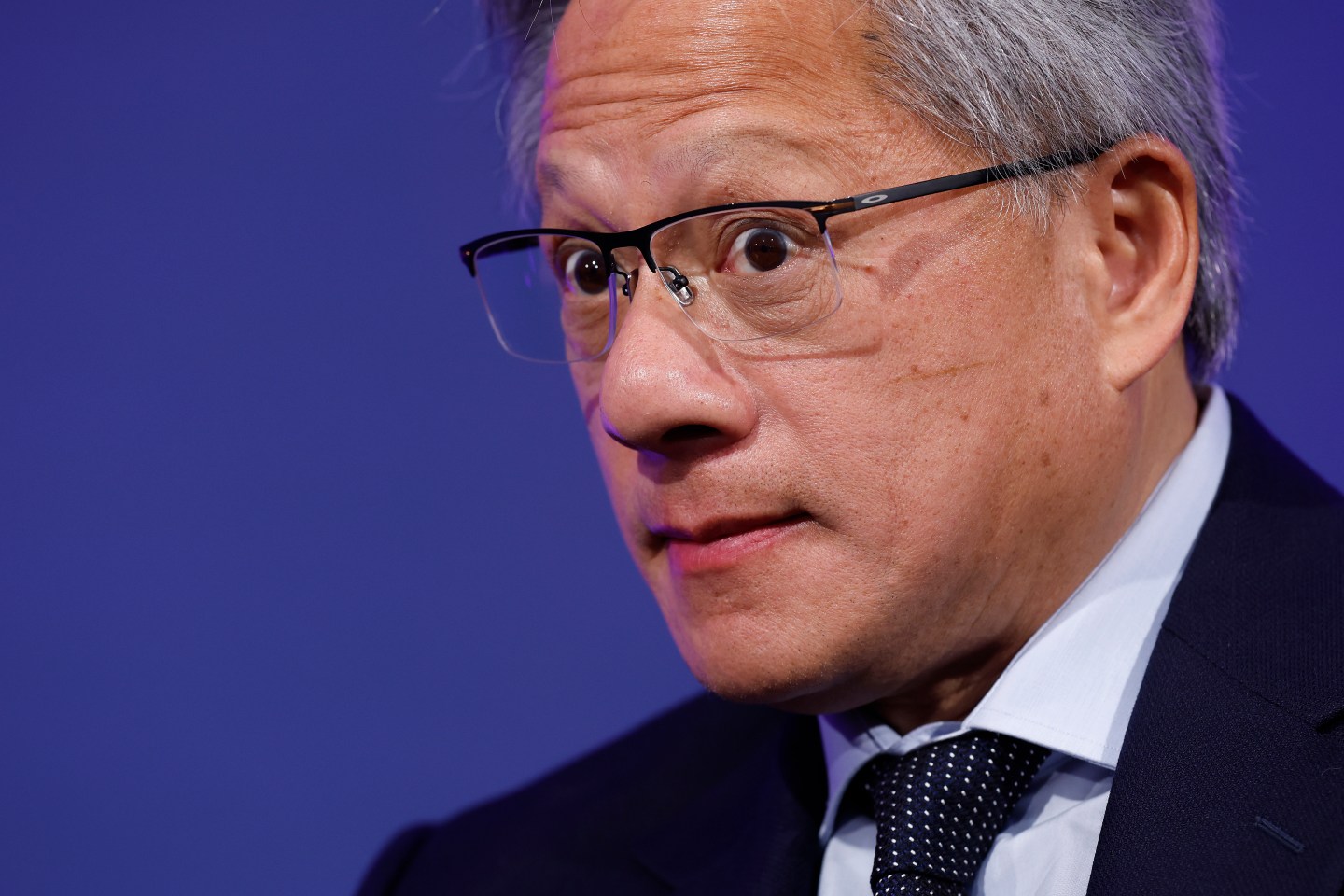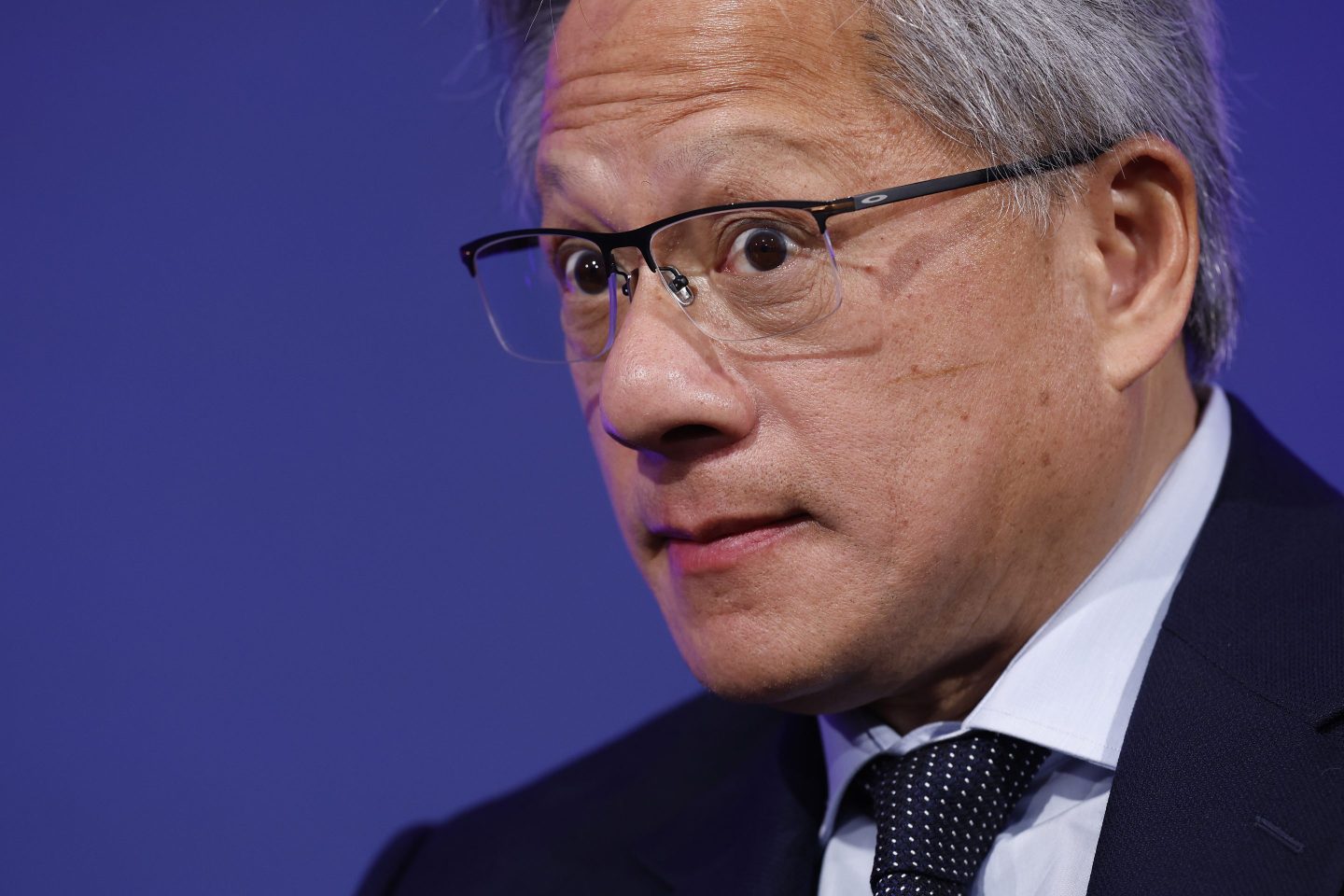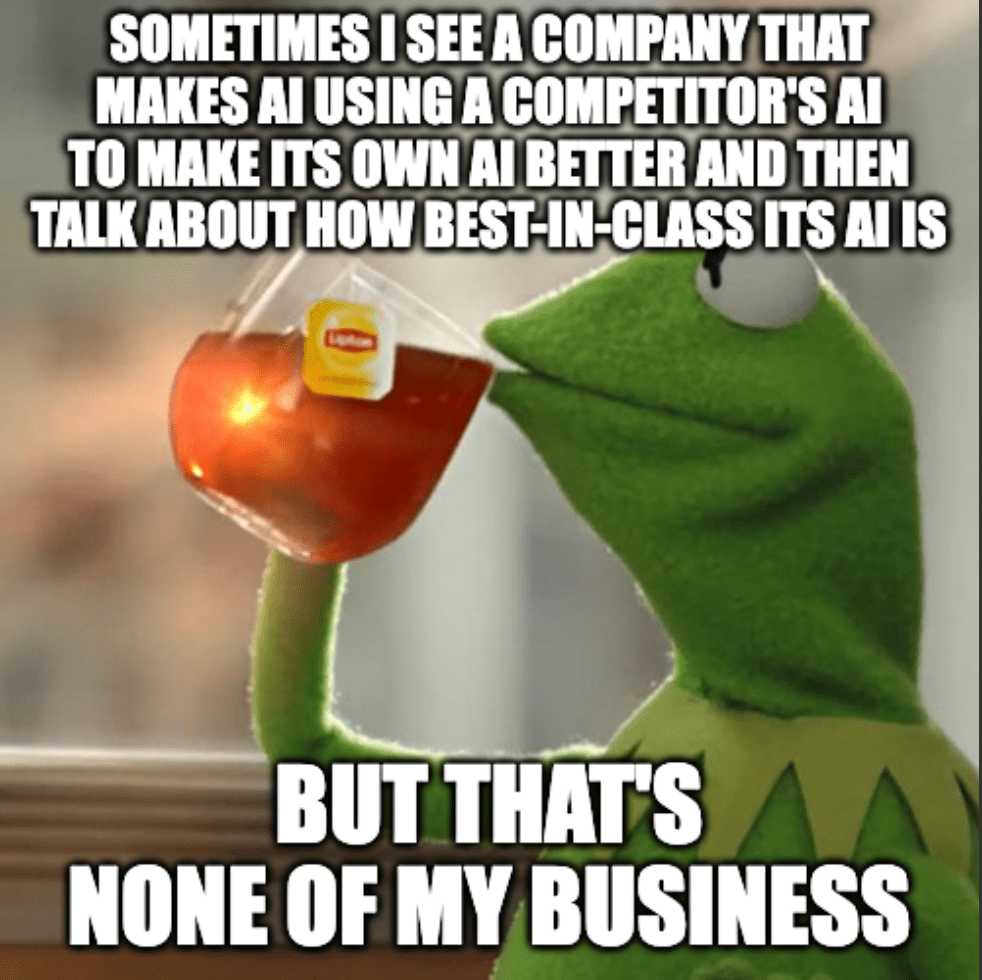Good morning. Fortune Brainstorm AI kicks off today in San Francisco.
Come to hear colleague Jeremy Kahn’s interview with Amazon head scientist Rohit Prasad, stay for my sit-down with the NFL quarterbacking great Colin Kaepernick. (And a whole lot in between.)
We’re livestreaming right here from 2pm Pacific. Go on, skip that status update meeting and tune in. Tell ‘em the ‘bots made you do it. —Andrew Nusca
Want to send thoughts or suggestions to Data Sheet? Drop a line here.
Big Tech profit growth is expected to slow

The combined profit growth of the Magnificent Seven tech companies—Alphabet, Amazon, Apple, Meta, Microsoft, Nvidia, and Tesla—is expected to slow from 34% this year to 18% next year.
That figure would be only 3% if high-flying Nvidia were excluded, according to a new Bloomberg Intelligence projection.
Eighteen percent profit growth would be admirable for most industries, but most businesses aren’t Big Tech. Investors count on their stocks, particularly amid the current AI frenzy, to drive equity indexes. But “those days appear to be over, at least for now,” Bloomberg writes.
Investors are on the hunt for alternatives. Money is flowing out of the IT category—$1.4 billion in the week through Dec. 4, per EPFR—and into categories like energy (who else will power all that AI?) and biotech. Small caps are supplanting Big Tech megacaps as the latter trades at more than 40 times projected earnings.
The one exception to the Mag 7 trend is Nvidia, which benefits from the heavy spending of its Big Tech peers. The looming question: If and when the hundreds of billions of investment in AI will pay off for the remaining six.
TikTok loses bid to overturn law that could lead to a U.S. ban
On Friday, a federal appeals court panel denied TikTok’s petition to overturn a law that requires the social media company to break ties with its Chinese parent ByteDance or be banned by mid-January.
TikTok had argued that the law, signed by President Biden in April on national security grounds, violated the free speech portion of the First Amendment.
But “the Government acted solely to protect that freedom from a foreign adversary nation and to limit that adversary’s ability to gather data on people in the United States,” wrote Judge Douglas Ginsburg.
The U.S. has expressed concern about TikTok collecting user data that could be obtained by the Chinese government through coercion. Officials in the U.S. and EU have argued that the TikTok algorithm could be manipulated by Chinese authorities.
TikTok and ByteDance are expected to appeal to the Supreme Court. If they do, and the court upholds the law, the Justice Department under President-elect Donald Trump would be tasked with enforcing it. Trump tried to ban TikTok during his first term but reversed his position during this year’s campaign.
Apple, Sony reportedly exploring Vision Pro collab
Apple and Sony have reportedly discussed a partnership that would add support for Sony’s PlayStation VR2 controllers to Apple’s Vision Pro headset, giving the costly, poorly selling mixed-reality device a gaming-focused upgrade.
Bloomberg reports that Apple would also sell Sony’s controllers, which are currently unavailable on their own.
There aren’t many proper games on the Vision Pro, but support for Sony’s controllers wouldn’t be limited to them. The hardware could be used for navigating the operating system or finer control of apps for photo or video editing.
But accessories may be only a small part of what ails Apple’s $3,500 headset, which CEO Tim Cook has called “an early-adopter product” and which analysts have described as a product in search of a use case.
In May, market researcher IDC forecast “robust growth”—a 44% increase to 9.7 million units—in sales of augmented, mixed, and virtual reality headsets.
"Apple's launch of the Vision Pro grabbed a lot of headlines and has raised awareness for AR and VR,” said IDC researcher Jitesh Ubrani in a statement, “and although it's priced out of reach for most, it is helping raise the bar for competitors.”
SpaceX, Palantir now have bigger valuations than top aerospace and defense companies
Shares of data-mining software Palantir Technologies, which offers AI-powered platforms to military, civilian and corporate customers, have soared 345% this year, giving the company a valuation of about $174 billion.
That tops the $157 billion market value of RTX—the parent company of Raytheon, Collins Aerospace, and Pratt & Whitney—as well as Boeing ($115 billion). Palantir had already earlier exceeded Lockheed Martin ($122 billion) and Northrop Grumman ($69 billion).
Meanwhile, privately held SpaceX is poised to grow into an even bigger behemoth. Elon Musk’s rocket company is reportedly considering a tender offer that would value it at $350 billion—up from a $210 billion valuation in June.
SpaceX is now the top provider of launch services, regularly performing missions for the military, NASA and companies, while also operating a constellation of more than 6,000 satellites used by military and civilian customers.
The rise of both Palantir and SpaceX has been marked by the Pentagon’s greater emphasis on space-based capabilities in future warfighting scenarios as well as a flurry of developments that point to the increasing importance of AI in the military. —Jason Ma
China’s rapid EV rollout has a downside: The cars all look the same
When car executives travel to China, they’re often shocked by the number of EVs on the roads, their sophistication, and their newfound ability to compete with the rest of the world.
But when veteran car designer Anthony Lo (Renault, Ford, BAIC Group) travels to the world’s largest car market, he notices something else. “There are so many new cars everywhere, but I couldn’t figure out which brands they belong to,” he said at Fortune Brainstorm Design in Macau on Thursday.
It’s part of a broader, homogenizing trend in China’s car market. Companies large and small are rapidly releasing new electric car models to keep ahead of the competition, at times designing cars twice as quickly as those producing internal combustion engine (ICE) cars.
“The development time of a new product is really fast … and because of that, you don’t really have a lot of time to actually come up with all-new ideas,” Lo said. Designers, instead, think: “Let’s go fast, and let’s choose something that’s a little bit safer.”
The shift to electric vehicles is still changing what cars look like. For example, EVs often ditch the front grille, as they don’t have the same cooling requirement as an ICE car. The battery is often placed between the wheels, giving EVs a profile that’s closer to a luxury car than a mass-market model.
“Cars have become a lot simpler, in terms of styling,” Lo said. “Every designer was dreaming of trying to make all the details more integrated, something quite difficult to do in the earlier era of manufacturing.” —Nicholas Gordon
More data
—Airbus will cut 2,000 jobs. Business is flowing to the Americans, including SpaceX.
—Researchers filed 39% more patent applications using AI, according to a new MIT study.
—Vietnam and Malaysia are seeing fresh tech investment in the wake of hostile US-China relations.
—Cybercriminals love .shop, .top, and .xyz domains because they’re cheap.
—Chainalysis plans to ride the crypto wave and help companies detect scams.














